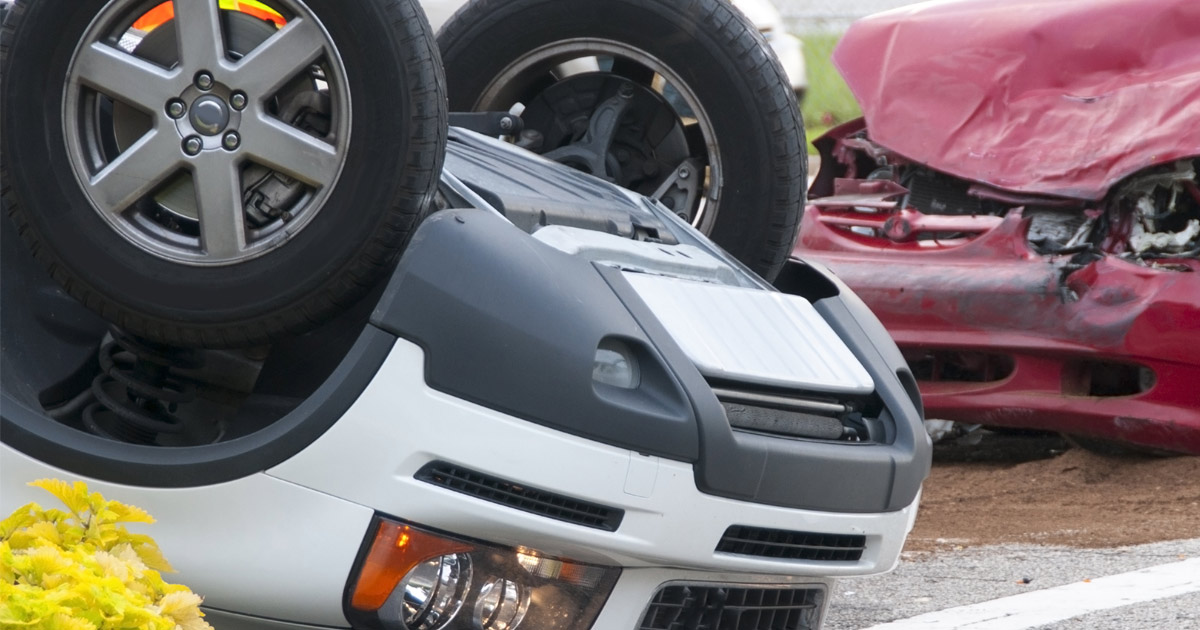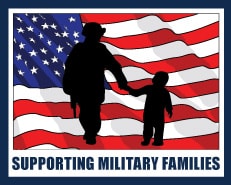Rollover collisions are among the most dangerous types of car accidents. In the United States, an estimated 10,000 people are killed every year when their vehicle flips over. Human error, vehicle design, and hazardous road conditions all contribute to rollover accidents and injuries. Continue reading to learn more about this dangerous type of accident.
What Causes Rollover Crashes?
A rollover accident occurs when a vehicle loses control and overturns onto its side or roof. A vehicle with enough momentum can roll multiple times before coming to a complete stop. With every rotation, the likelihood of critical injuries increases.
Rollover crashes occur for various reasons, including:
- Aggressive driving
- Alcohol and drug use
- Bad weather
- Auto defects
- Driver error
- Speeding
- Poor road conditions
- Road construction
- Vehicle design
Typical Rollover Accident Injuries
Approximately 2.1 percent of collisions are rollover accidents; however, rollover crashes cause 30 percent of all passenger vehicle fatalities each year. Passengers jolted against the interior of the cabin or ejected from the vehicle can suffer from the following:
- Amputations
- Broken bones
- Dental injuries
- Lacerations
- Nerve damage
- Organ damage
- Spinal cord injuries, including paralysis
- Traumatic brain injuries (TBIs)
- Vision loss
Seat Belts Reduce Rollover Injuries
There is no disputing that seat belts save lives. This is especially true for individuals involved in rollover accidents. A staggering 70 percent of people who lost their lives in rollover wrecks wear not wearing seat belts.
Without a restraint, a passenger is more likely to be ejected from the vehicle and sustain a catastrophic injury. A passenger can be hurled onto the ground, into another object, or even hit by another vehicle.
What Should I Do at the Accident Scene?
Being in a vehicle during a rollover wreck can be incredibly frightening and disorienting. Knowing how to proceed immediately after a crash helps keep everyone calm, potentially mitigating injuries. Some important steps to take after a rollover collision include:
Assess the Scene: Once the vehicle has come to a complete stop, look around to see if anyone is hurt. Keep in mind not all injuries are immediately apparent. Wait for ambulance before attempting to move injured victims or to exit the vehicle.
Call for Help: Call the police. Relay the circumstances of the crash with crews at the scene so they can best assist everyone involved.
Document the Scene: Take photographs and videos of the roadway and any damage done to the vehicles. Record witness accounts, and file a police report.
Gather Contact Information: Write down the other driver’s name, phone number, and insurance information. Make a note of their vehicle make, model, and license plate number.
When Should I Speak to a Lawyer?
Before speaking with the insurance company, consult with a lawyer who has experience handling personal injury claims. A lawyer will help a victim get a fair settlement offer after they report the accident to the insurance company. Always speak with a lawyer before making a recorded statement or accepting any liability for the crash. Comments taken out of context can jeopardize a future legal claim.
Should I Go to the Doctor After the Accident?
Life-threating injuries require immediate care. After the accident, an injured victim should go see their doctor once their lawyer and insurance provider have been notified. A victim should make sure to keep all medical records, including bills, payments, prescriptions, test results, and diagnoses.
Working with a Lawyer After a Car Accident
Rollover accidents cause more than just bodily injury. A person who is fortunate enough to survive a hazardous wreck may also face physical pain, emotional trauma, costly medical bills, and higher insurance rates. Many victims are temporarily or permanently unable to go back to work.
A lawyer’s job is to help their client recover these physical, emotional, and financial losses so they can focus on the recovery process. Here are some of the ways a lawyer can assist their client after a rollover accident:
- A lawyer helps the victim understand their legal rights and responsibilities.
- A lawyer communicates with the insurance companies.
- A lawyer explores and evaluates all the information and evidence that was collected to conduct an extensive investigation.
- A lawyer builds a case to justify the need for compensation to cover medical costs, lost income, and pain and suffering for the victim.
Throughout the claim process, an effective lawyer keeps in regular contact with their client, continually updating them on their progress, answering questions, and providing skilled guidance to achieve the best possible outcome.
Who is Liable for a Rollover Accident?
It is important to note, not every injured accident victim has cause to sue. Sometimes, crashes happen because of something out of one’s control, like bad weather. Yet, in most cases, someone is directly responsible for causing a preventable rollover crash. Here are some scenarios where a claim against another party makes sense:
- The city or town failed to properly maintain the roadway. Potholes or sinkholes can cause vehicles to flip over. The injured driver can sue the negligent municipality.
- A defective tire on the vehicle caused a blowout, leading to a rollover accident. The company that manufactured or installed the tire may be liable for crash.
- Distracted driving caused the accident to happen. The passenger in the other vehicle can sue the distracted driver.
Damages for Rollover Accidents in Virginia
In Virginia, compensation for damages after a rollover accident is based on a variety of factors. Damages include:
Economic Damages
Economic damages are fairly straightforward and determined according to the evidence provided. Medical bills validate costs of medical care, and pay stubs prove how much income the injured person missed while they were unable to work.
Non-Economic Damages
Non-economic damages are just as significant, but they are also a bit more difficult to quantify. Non-economic damages include pain and suffering and mental anguish. A rollover car accident is especially traumatic and can cause severe anxiety that makes it hard to work and sleep in the weeks and months that follow. Other non-economic losses include disability or disfigurement and loss of consortium.
Federal law requires non-economic damages to be reasonable, generally limiting them to no more than 10 times the total amount of economic damages. They can be challenging to prove and are more likely to be issued if they manifest in physical symptoms. For example, a person with post-traumatic stress disorder (PTSD) tends to experience flashbacks, nightmares, and other debilitating symptoms that severely impact daily life.
How to Recover Compensation
Just like every accident is unique, so is every legal claim for damages. With any type of car accident, recreating the accident is essential to proving liability. Accident scene photos, eyewitness accounts, and police reports are important because they make the connection between negligence and injuries.
While it is certainly possible to survive a rollover car accident, especially when wearing a seat belt, the chance of having a severe injury is high. To recover the costs of medical care and to hold the reckless party responsible, an injured passenger may choose to file a claim. A trusted lawyer is the best resource to determine if a claim makes sense and how to get started.
Virginia Beach Car Accident Lawyers Advocate for Passengers Injured in Serious Rollover Crashes
Anyone who has survived a rollover accident may be left with life-changing injuries. If you were recently involved in a rollover collision, one of our Virginia Beach car accident lawyers can help. At East Coast Trial Lawyers, our dedicated legal team advocate for every client and work tirelessly to help them recover. Call us at 757-352-2237 or complete our online form for a free consultation. Located in Virginia Beach, Virginia, we serve clients throughout Chesapeake, Eastern Shores, Hampton, Newport News, Norfolk, Portsmouth, and Suffolk, Virginia, as well as North Carolina and nationwide.


